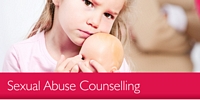When you have had to make the terribly difficult decision to put your loved one into an assisted living facility, you trust in the patience, kindness, and competence of the staff. No one wants to think that their parents or grandparents would be the victim of negligent or abusive actions from their caregivers, but sadly, this is now an all too common reality.
If your loved one has started to complain of abuse, or to show signs of distress, it is important to know how to determine if they are being victimized. Once nursing home abuse has been determined, removing your loved one from the situation and hiring an experienced nursing%20home%20injury%20lawyer" nursing home injury lawyer will help you and your family get on the path to recovery.
Signs of Physical Abuse and Neglect in Nursing Homes
Abuse in a nursing home can take on several forms. Easily the most recognizable is physical abuse and neglect. Signs of this type of abuse are:
• Dirty, torn, or bloody clothing
• Bruises, cuts, or broken bones
• Poor hygiene
• Bed sores
• Medications not being administered
• Malnourishment
These injuries are easily visible, but others may be less easy to identify.
Signs of Emotional and Sexual Abuse in Nursing Homes
Perhaps less physically damaging but no less sinister and ugly are emotional and sexual abuses at the hands of nursing home employees. Your loved one may be suffering from these abuses if they:
• Seem nervous or frightened around nursing home staff
• Talk about being yelled at or humiliated by the staff
• Have bloody undergarments, or blood around their genitals
• Have bruises around their breasts or genitals
• Have contracted a venereal disease
These abuses may require more investigation than merely viewing your loved one's outer appearance. Making sure to spend time listening to them, and asking questions about their experiences are necessary to discover emotional and sexual abuse.
Nursing home abuse can take on other forms as well, from financial abuse, to exploitation. Keeping track of your loved one's finances and making frequent, unannounced visits remain the most effective way to safeguard against these, and all other types of nursing home abuse.



